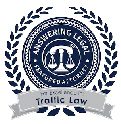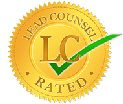Why you Should Fight your New York State Disorderly Conduct Case
Free Consultation
Have you been arrested or given a summons for disorderly conduct in violation of New York Penal Law § 240.20? If so our lawyers and attorneys can defend you in NY criminal court to ensure that you do not end up convicted of the infraction.
Disorderly conduct charges under NY PL § 240.20 are heard in the NYS city courts, town courts, village courts, and justice courts. In NYC, the courts that hear the disorderly conduct charges are as follows:
- Manhattan Summons Court, 346 Broadway, New York, NY
- Manhattan Summons Court, 50 Lafayette Street, New York, NY
- Midtown Community Court, 314 West 54th Street, New York, NY
- Bronx Criminal Court, 161st Street, Bronx, NY
- Queens Criminal Court, 120-55 Queens Blvd., Kew Gardens, NY
- Red Hook Community Justice Center, 88-94 Visitation Place, Brooklyn, NY
- Staten Island Summons Court, 26 Central Avenue, Staten Island, NY
- Disorderly conduct is one of the most commonly charged statutes in the State of New York. Everyday, ordinary people get charged with disorderly conduct in New York City for things such as standing in the street trying to hail a cab, arguing too loud, talking back to cops, and even double parking. The reason why it is so easy to get a citation for disorderly conduct is that the statue is written very broadly. It has 7 different subsections that cast a wide net over what is everyday behavior.
Although disorderly conduct is a violation and not a crime it is still a serious offense. It is contained in the penal code, so anytime someone does a criminal background check it is able to be found. So it is important to retain a lawyer that has the know how to get your disorderly conduct ticket dismissed.
Disorderly Conduct and the Judicial Procedure
If you were given a ticket for disorderly conduct study the contents of it carefully. On the bottom of the ticket it will note on it the name and address of the ticket and a date, which is referred to in the business as a “return date.” That is a very legally significantly date, as that is the date of arraignment. You must be in court on that date. Your failure to appear will result in a warrant being issued for your arrest. If you cannot appear in court then you must retain counsel to appear for you and request an adjournment for a date in which you are able to appear. This will avoid a warrant being issued for your arrest.
At arraignment you will be read and provided with the information. This is the document that details the particular way or ways the state is alleging you were disorderly. These are also known as elements to the charge. The elements to disorderly conduct are:
- Fighting or engaging in violent, tumultuous or threatening behavior, or
- Making unreasonable noise, or
- Using abusive or obscene language, or making obscene gesture in a public place, or
- Disturbing any lawful assembly or meeting of persons without lawful authority, or
- Obstructing vehicular or pedestrian traffic, or
- Congregates with other persons in a public place and refuses to comply with a lawful order of the police to disperse, or
- Creating a hazardous or physically offensive condition by any act which serves no legitimate purpose.
- Most people charged with disorderly conduct are not worried about the fine as much as the prospect of having the charge becoming a permanent public record. This is a legitimate concern. If you have been charged with disorderly conduct we know that you are likely concerned about the charges and probably have more questions and concerns. If this is the case please pick up the phone right now and give us a call. We talk to people like you every day. We’d love to chat with you and answer any remaining questions you may have.




Advance Legal
Medicaid Fraud Attorney
Estate Lawyer NY
Advance Legal Blogspot
Brooklyn Trust and Will
